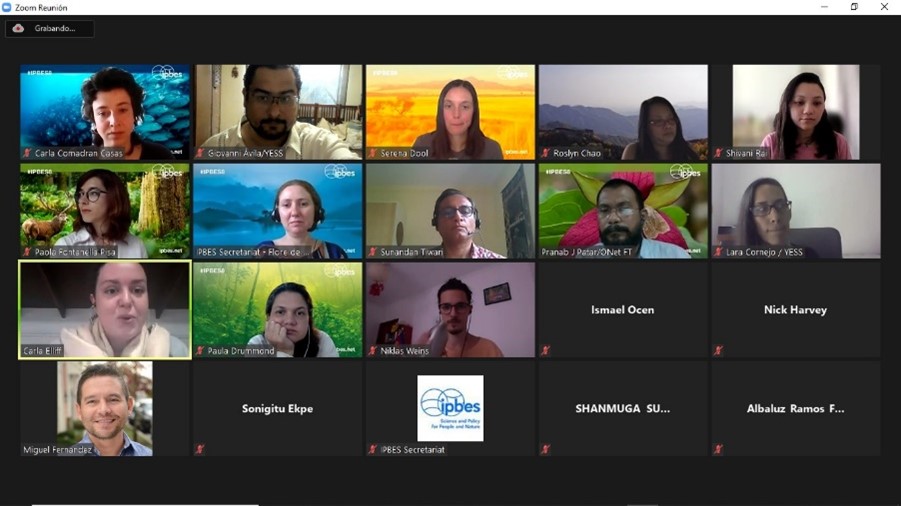Young ES Specialists (YESS) has been present at Stakeholder Days and 8th Session of the IPBES Plenary (IPBES-8) through a delegation of 15 early-career researchers (ECR) from 12 countries from Europe, Latin America, and Asia. The head of this delegation is Dr. Giovanni Ávila-Flores.
During the Stakeholders Days (June 4, 7 and 8), the YESS members Andrew Kadykalo, Hyeonju Ryu and Carla Washbourne presented some research results about barriers and opportunities for ECR, which generated positive comments. On June 09, the representative of YESS in Open-Ended Network of IPBES Stakeholders (ONet), Paola Fontanella Pisa, made a call for new actors to join ONET and IPBES activities in general, focusing on youth participation and ECR.
Subsequently, YESS supported Onet through facilitators to the breakout sessions for Opening Statement; being the volunteers: Albaluz Ramos-Franco, Niklas Weins, Shivani Rai, Lara Cornejo, Carla Comadrán-Casas and Carla Elliff. There was also a summary of daily notes prepared by Nita Shashidharan and a design in the “Miro” app by Carla Madueño. Later during the IPBES-8 plenary, all delegates attended the Plenary meetings using the Interactio platform, including William Sidemo Holm and Shankar Adhikari. In addition, the representatives participated each day of the plenary in informal discussions with Onet members, organized by Dr. Flore Lafaye of Micheaux IPBES Senior Program Officer.
At the time of writing these lines, it is expected that next Thursday, June 24, will end satisfactorily with the YESS activities in IPBES-8, and a report will be prepared on the experiences and conclusions about this international event. Finally, the delegation wishes to thank the whole YESS network for this incredible opportunity, highlighting the efforts to achieve IPBES accreditations by Dr. Nada Saidi and Nina Kaiser. As well as the entire ESP community.
Source: https://enb.iisd.org/biodiversity/IPBES8

